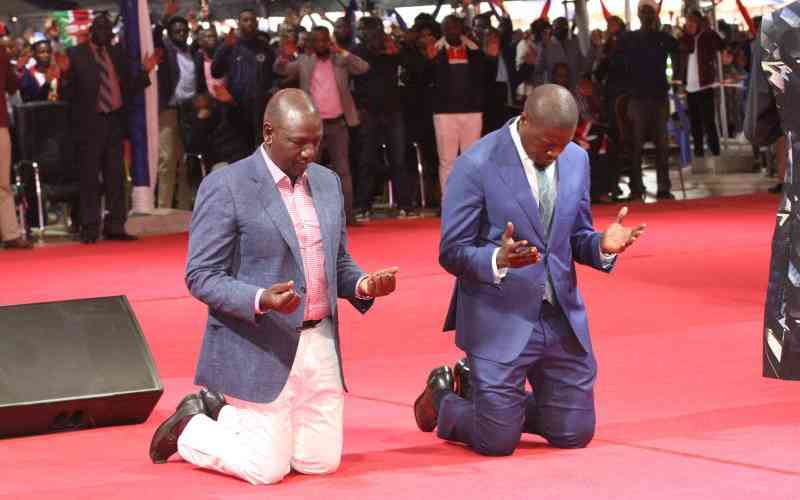×
The Standard e-Paper
Fearless, Trusted News

In his first tweet as president, William Ruto quoted Psalms: "This is the day the Lord has made; let us rejoice and be glad in it." Religion was a key part of Ruto's campaign.
The evangelical leanings of the president, First Lady Rachel Ruto and the Deputy President and his wife were open for all to see during the swearing-in ceremony at Kasarani Stadium.